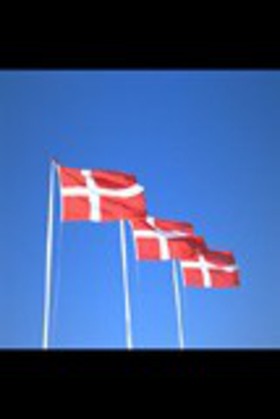Environmental clause

- Danish flags. Denmark obtained a special environmental clause in the Single European Act. (Photo: Notat)
Environmental clause
The environmental clause provides for member states to keep or introduce more protection of the environment in a member state that EU rules otherwise would allow. There are strict conditions for such derogations.
In 1987, the Single European Act introduced decision-making by qualified majority voting for matters affecting trade between member states in the so-called Internal Market). Denmark, in particular, was afraid of having its environmental standards reduced by this.
A majority vote of the other states in the interests of harmonising internal market standards could over-ride Denmark’s quite high environmental standards.
Denmark therefore obtained a so-called “environmental guarantee” allowing member states both to keep and introduce stricter environmental standards than the minimum levels laid down by a qualified majority in the EU.
This “guarantee” made it possible for the Danish Government to obtain a “Yes”
vote in its referendum on the Single European Act in 1986. This referendum was
called by a minority government against the advice of the majority in the
Danish Parliament.
The clause was set out in the Treaty of Amsterdam but its
value was called into question six months later when the Commission decided not
to allow special Danish rules on nitrates and sulphites to avoid cancer.
In 2003, the EU Court allowed Denmark to keep its rules on nitrates because the EU Commission had not respected a statement from the EU's Health Committee. Yet the Danish rules on sulphites were outlawed.
The clause has been successfully used to allow bans on PCP in different member states, but even then only when the production of PCP was banned in all member states.
It was also used against cancer-causing creosote, but on the condition that the common EU market was not disturbed.
The clause is now to be found in the Lisbon Treaty as Article 114.4-10 TFEU, previously in Article 95 TEC.
Notes
* The specific EU rules for the environment only permit minimum laws. Member states can introduce tougher rules on top of these if they choose, but they have to be compatible with the general principles of EU law.
* It is also a problem for countries with higher environmental standards when laws affecting the environment are adopted with a legal basis in the internal market Articles instead of the special Articles on the environment. Internal market rules normally entail "total harmonisation" instead of "minimum harmonisation" of all rules.
* The term environmental clause is also used for a clause that can be inserted in trade agreements to ensure that producers are bound by certain environmental rules.
* Without mentioning of the environmental clause Commission President Barroso has permitted Denmark and Austria to keep stricter rules on F-gasses. Denmark was also permitted to keep stricter rules for pesticides, nitrate in ecological sausages and trans fat, partly after pressure from the European Parliament and active MEPs.
See also Harmonisation
